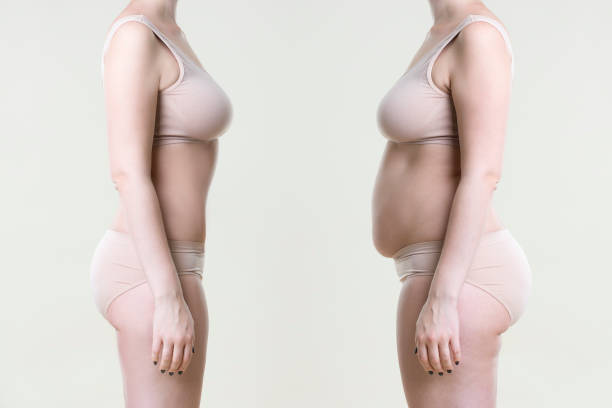Liposuction Surgery Recovery Tips For Smooth Healing
Liposuction surgery is a popular cosmetic procedure that helps individuals achieve a more sculpted and contoured body by removing stubborn fat deposits. While the procedure itself is important, how you recover afterward plays a crucial role in the overall success of the surgery. Understanding the recovery process and following the right steps can significantly improve healing outcomes and ensure you enjoy the best possible results.
Understanding the Recovery Process After Liposuction Surgery
Recovery after liposuction surgery in Riyadh involves a series of stages, including immediate post-operative care, swelling reduction, and gradual return to normal activities. The body needs time to heal and adapt to the changes, which includes the retraction of the skin over the newly contoured areas.

Immediate Post-Operative Care
Right after the procedure, managing discomfort and preventing infection are priorities. Your medical team will provide compression garments to wear, which help reduce swelling and promote better contouring of the treated areas. Proper hygiene and wound care are essential to avoid complications.
Swelling and Bruising Management
Swelling and bruising are common following liposuction surgery. Understanding that these effects are temporary and typically subside over several weeks can help set realistic expectations. Following recovery guidelines to reduce inflammation is highly beneficial during this phase.
Essential Tips for a Smooth Healing Journey
Successfully recovering from liposuction surgery depends largely on your commitment to post-surgical care. Below are key strategies that promote healing and enhance the overall outcome.
Wear Compression Garments Consistently
Wearing compression garments as prescribed helps the skin adjust to the new body contours and prevents fluid buildup that can cause discomfort and swelling. Consistent use supports faster healing by applying pressure evenly over the treated areas.
Maintain a Healthy and Balanced Diet
Nutrition plays a vital role in tissue repair and immune function. A diet rich in vitamins, minerals, and antioxidants can help promote rapid healing and reduce the risk of infection. Staying hydrated is equally important to assist flushing out toxins from the body.
Follow Surgeon’s Instructions Carefully
Adhering strictly to your surgeon’s advice about medication, activity restrictions, and wound care ensures the best results. Skipping prescribed antibiotics or pain management protocols may lead to complications or prolonged recovery.
Gradually Increase Physical Activity
While rest is critical right after surgery, slowly introducing light activities such as walking enhances blood circulation, which helps reduce swelling and prevents the formation of blood clots. Avoid strenuous exercises until your healthcare provider clears you.
Monitor Any Unusual Symptoms
Keep an eye on signs like excessive redness, prolonged pain, or unusual discharge from incision sites, which might indicate infection or other complications. Prompt communication with your medical professional can address issues early and protect your recovery.
Avoid Smoking and Alcohol During Recovery
Smoking impairs blood flow and delays tissue healing, while alcohol consumption can interfere with medications and increase swelling. Abstaining from these substances supports faster and smoother healing.
Managing Emotional Well-Being During Recovery
Undergoing liposuction surgery and its recovery can affect your emotional health. It’s common to experience impatience or frustration due to swelling or the wait for final results. Practicing mindfulness, staying connected with supportive friends or family, and managing expectations help maintain positive mental well-being throughout the process.
Long-Term Care to Maintain Liposuction Results
While proper recovery care ensures initial healing, adopting a healthy lifestyle is essential to sustain the effects of liposuction surgery. Balanced diet, regular physical activity, and avoiding excessive weight fluctuations contribute to lasting results. Incorporating skin moisturizing can also help maintain skin elasticity over treated areas.
Frequently Asked Questions
How long does swelling typically last after liposuction surgery in Riyadh?
Swelling can vary but generally peaks within the first few days and gradually subsides over the following weeks. Most swelling resolves within a few months as the body heals.
Is it normal to feel numbness after undergoing liposuction surgery?
Yes, temporary numbness around the treated areas is common and usually resolves as nerves regenerate during the healing process.
When can I resume normal exercise after liposuction surgery?
Light activities like walking can begin soon after surgery, but more intense workouts should be postponed until cleared by your healthcare provider, typically several weeks later.
Can I shower normally after liposuction surgery?
Your surgeon will provide specific instructions, but showers are usually allowed after a couple of days, while keeping incision sites dry and properly covered to prevent infection.
What should I do if I notice unusual pain or redness during recovery?
These could be signs of infection or other complications, so you should contact your healthcare provider promptly for evaluation and treatment.
How important is wearing compression garments after liposuction surgery?
Compression garments are critical for reducing swelling, improving contouring, and supporting healing, so consistent use is highly recommended according to your surgeon’s guidance.